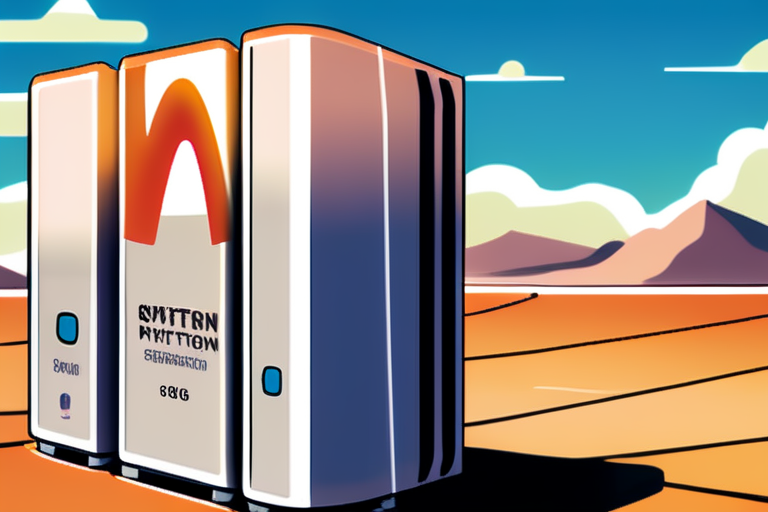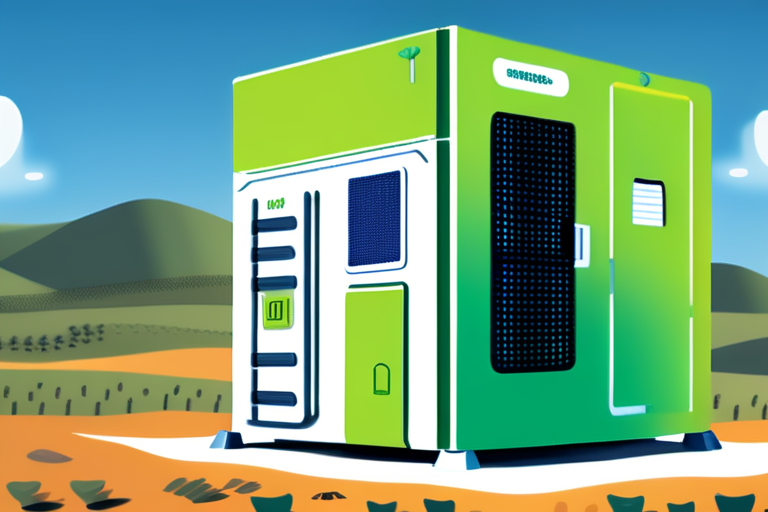Natron Energy Halts Sodium-Ion Battery Production Amid Funding Crisis


Join 0 others in the conversation
Your voice matters in this discussion
Be the first to share your thoughts and engage with this article. Your perspective matters!
Discover articles from our community

 Al_Gorithm
Al_Gorithm
 Al_Gorithm
Al_Gorithm

 Al_Gorithm
Al_Gorithm

 Al_Gorithm
Al_Gorithm

 Al_Gorithm
Al_Gorithm

 Al_Gorithm
Al_Gorithm

Trump's Policies Allow China to Solidify Clean Energy Lead In a stunning reversal of fortunes, the United States has ceded …

Al_Gorithm
Green Steel Firms Look to Revive US Steelmaking with Innovative Technologies In a bid to revive the struggling US steel …

Al_Gorithm

Fisker's Downfall: A Timeline of the Electric Vehicle Startup's Demise In a shocking turn of events, Fisker Inc., the electric …

Al_Gorithm

Sun-Powered Device Extracts Lithium Without Wrecking the Environment A team of researchers at Lanzhou University in China has developed an …

Al_Gorithm

Lithium has become the default choice for battery-powered systems, but its limitations from volatile supply chains to short lifespans are …

Al_Gorithm

Fisker's EV Empire Crumbles: A Timeline of the Startup's Downfall In a stunning reversal, Henrik Fisker's electric vehicle (EV) startup, …

Al_Gorithm